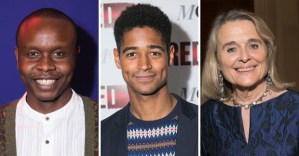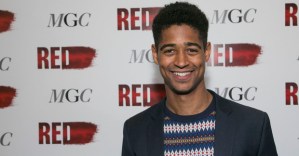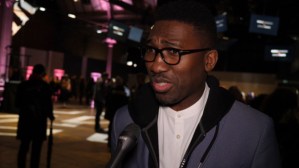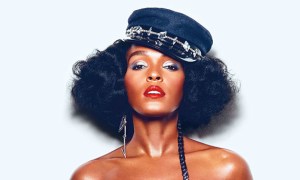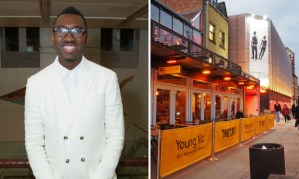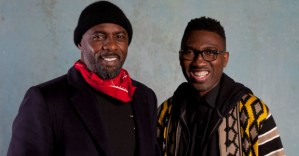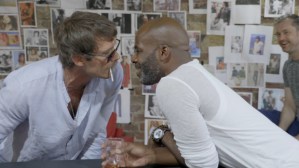Review: Tree (Manchester International Festival, Upper Campfield Market Hall)
Alfred Enoch stars in this opening piece at MIF
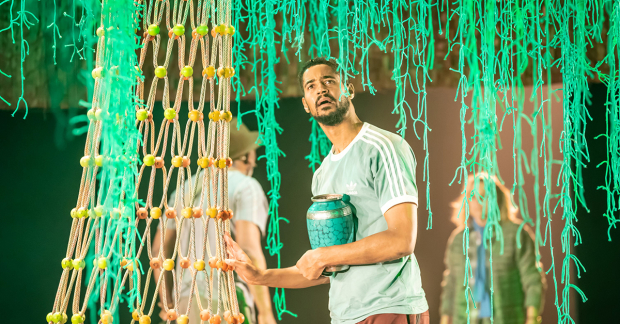
© Marc Brenner
It begins with a party and ends with a rave, the audience clambering on stage to dance in a great gesture of reconciliation and healing. With its blend of theatre, dance and music, Tree is the perfect celebratory work with which to launch this year's iteration of the Manchester International Festival.
It's a shame then that the show has become submerged in a dispute in which two young writers Sarah Henley and Tori Allen-Martin claim that they have been frozen out of the creation – something the show's producers firmly contest. Both are thanked in the programme, but beyond that it is impossible for an outsider to know exactly what has gone on.
The show as we now see it is created by Idris Elba and Kwame Kwei-Armah, directed by Kwei-Armah, and based on an idea of Elba's which grew from his Mi Mandela music album, which in turn developed from his performance in the Nelson Mandela bio-pic Long Walk to Freedom, which was dedicated to his dead father. It transfers to the Young Vic later this month.
"Sometimes the dead need you to find them," the compelling Kurt Egyiawan confides as the show opens. That's what Kaelo (Alfred Enoch) sets off to do, as he leaves London with his white mother's ashes and the intention of finding his father's grave in South Africa. That takes him into a journey into his family's past, and the recent history, of the country: he meets his initially hostile grandmother (Sinead Cusack), his long lost half sister (Joan Iyiola) and an old gardener (Patrice Naiambana) who invokes the boy's ancestors in an attempt to help him understand.
Much of the show's impact comes from the way it is staged, with the audience standing around the action, which spills out into the crowd from a circular stage with a long runway attached. Designers Jon Bausor (set and costumes), Jon Clark (lighting), Paul Arditti (sound) and Duncan McLean (projection) create a phantasmogorical, involving landscape where simple effects such as placards, a piece of cloth as a river, or an overarching tree made of string are combined with complex digital ones. A circular hoop of a screen overhead is full of light, a fence, fireflies, and the heat of the land.
It's a magical setting, much enhanced by choreography from Gregory Maqoma and Michael ‘Mikey' J Asante which brilliantly combines traditional Africa dance with the moves of hip hop and street, to create everything from a nightmare where Kaelo is held in the arms of his ancestors, to the vicious battles which result in death and blood. Throughout, Kwei-Armah holds the balance between the spectacular and the intimate which is inherent in the story itself, as Kaelo begins to understand that the political is personal, that land is more than the place you stand.
The early parts of the story, in particular, are absolutely and almost literally entrancing, slipping between drama and dance, entwining you in the story. There are no seats as such and it's a long stand (some 90 minutes) but an involving one. Towards the end, it arguably becomes too linear, and – probably because of worries about length – too rushed. You have started to care about these people and want to know more about them, particularly Egyiawan's gentle, serious Lundi, the father whose divided loyalties trigger tragedy. But the performances hold and captivate. Enoch is just the right side of annoying as Kaelo, Cusack brings all her intelligence and fierceness to his grandmother, Iyiola is both wonderfully funny and fierce as the sister, and Naiambana manages to suggest anger as well as wisdom in a passing expression.
At the close, the hopefulness and joyful dancing feel earned.


